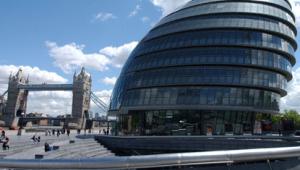There was dismay when on 21 July the Treasury announced a deadline for devolution bids of 4 September. Many felt that such a short time frame, running over the summer holidays, was unrealistic. This was exacerbated by the fact that while the deadline was clear, the process – what powers were on offer, what bids should look like, how they would be evaluated – was not.
People were more or less reading the runes as they submitted their plans. For cities, it has been fairly clear from Chancellor George Osborne’s speeches that they have to more or less comply with the “Manchester model”: a combined authority and an elected mayor. For non-metropolitan areas it has been less clear.
It’s appropriate that devolution should be locally led and not operate to a central template, but this didn’t make meeting the deadline any easier.
So, after a frantic August, where have we ended up? Thirty-eight bids went in. The process is not a public one so we can’t be certain exactly what they contained. Reports are that most areas submitted bids and some have leaked to the press or otherwise circulated, so we have a picture of what they contain.
Many places have worked fast to get political buy-in from a range of councils, often under different political control. This has not been easy and we do know of examples where this has not proved possible, either within a county or between two areas that might have put in a joint bid.
Inevitably, given the timings, consensus has been achieved by focusing on the top line and parking some of the more thorny governance questions.
The best bids set out the core principles on which the councils involved will work together. Bids have tended to focus on requests for more powers over areas such as housing, skills, transport and, in some cases, health and social care integration.
These also have a clear narrative about what they want to achieve, what resources they need to achieve it and how they are planning on delivering. They are as much an offer to government as an “ask” of it.
If you wanted to be critical, you might argue that the focus on housing, skills and transport doesn’t take us much further than the City Deals of the last parliament. However, it does extend the trend to much more of the country, which is a good thing.
The real question is what happens next. There is a risk that the rush to get bids in by the start of September has stifled their ambition and led many to kick complex political questions into the long grass.
Most metropolitan areas are accepting, if grudgingly, that elected mayors are the price of doing business with the government, but there is stiff resistance to this in two-tier areas. Some of the principles for working together that counties have set out will come under real pressure when these sorts of decisions have, finally, to be made.
We shouldn’t see this as an end point, more as an opening position. There’s potential to redraw the political map and to align it with real economic geographies.
Places that have not got a clear sense of what they want to achieve, or are simply trying to tell ministers what they want to hear, will be found out. Those who are genuinely committed to working together and open-minded about how to do so have an opportunity to flourish.





















